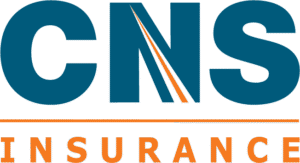Non-Domiciled CDLs are under the microscope – here’s what Insurers are watching for in 2025 and beyond.
The Federal Motor Carrier Safety Regulations (FMCSRs) have long required drivers to be able to read and speak English well enough to understand road signs, communicate with enforcement officers, and complete required reports.
But as federal and state agencies step up enforcement of this rule, the trucking industry may see significant ripple effects.
Let’s take a closer look at how this could significantly impact commercial auto rates, especially for fleets employing foreign drivers or relying on non-domiciled CDL holders.
The Impact on Out-of-Service (OOS) Violations
When English proficiency enforcement increases, fleets employing drivers with limited language skills could see a rise in OOS orders.
Enforcement officers are now more likely to place drivers OOS if they determine a driver cannot sufficiently:
- Understand and respond to roadside instructions,
- Read and interpret traffic signs, or
- Accurately complete compliance documentation.
Because OOS violations are a key metric underwriters analyze when pricing policies, more violations can directly lead to higher commercial auto premiums.
Fleets that already operate in high-risk states or that have prior compliance issues may be especially vulnerable.
Changing the Driver Hiring Landscape
The trucking industry has long relied on foreign-born drivers, many of whom come to the U.S. on work visas. Stricter English enforcement could dramatically shrink the available driver pool in certain states by limiting fleets’ ability to hire these drivers.
- Fewer recruiting options: Fleets facing driver shortages may be forced to look elsewhere or invest more heavily in domestic recruitment.
- Compliance exposure: Hiring drivers who cannot meet language requirements risks OOS violations, potential liability in the event of a crash, and higher insurance scrutiny.
In short, fleets that fail to adapt hiring practices could face higher costs and lower insurance availability.
Spotlight on Non-Domiciled CDL Training
This enforcement push also shines a light on non-domiciled CDL programs—where foreign drivers obtain a CDL while in the U.S. Underwriters are expected to pay closer attention to:
- Whether fleets are employing non-domiciled CDL holders,
- The training procedures fleets have in place to ensure these drivers understand English requirements, and
- The company’s overall hiring policies and safety culture.
Insurers will dig deeper into driver rosters and compliance practices to assess whether a fleet is at higher risk of language-related violations or litigation exposure.
What Underwriters Are Watching
Underwriters will increasingly focus on:
- Driver lists and CDL types – Are there non-domiciled CDLs, and how many?
- Hiring and training programs – How does the fleet verify language proficiency during onboarding?
- Violation history – Have there been OOS orders related to English deficiencies?
- Fleet safety culture – Is there documentation showing proactive compliance management?
Fleets that can demonstrate strong, consistent processes will be in a better position to negotiate rates and coverage.
What Fleets Should Do
For fleets, the message is clear: compliance and documentation matter more than ever.
To prepare for this, fleets should:
- Review hiring practices to ensure English proficiency is properly evaluated and documented.
- Reinforce training programs with language requirements built into onboarding and safety refreshers.
- Track OOS violations closely to identify and address root causes before renewal time.
- Communicate with insurers proactively about steps taken to reduce risk exposure.
What Can You Do Now?
By keeping your record clean, controlling CSA scores, avoiding unnecessary claims, and demonstrating a commitment to safety and business stability, you can make yourself a more attractive — and less expensive — customer in the eyes of insurers.
At CNS Insurance, we specialize in helping trucking companies and owner-operators navigate these challenges, compare policy options, and build risk profiles that appeal to underwriters. A proactive approach today could mean thousands in savings when renewal time comes.
The worst situation to be in is getting bad commercial truck insurance coverage and being committed to it for a year when one accident can ruin your business.
Fill out a complete quote or quick quote to get started.
If you have any questions or concerns, please call us at 800.724.5523 or email info@cnsinsures.com.




